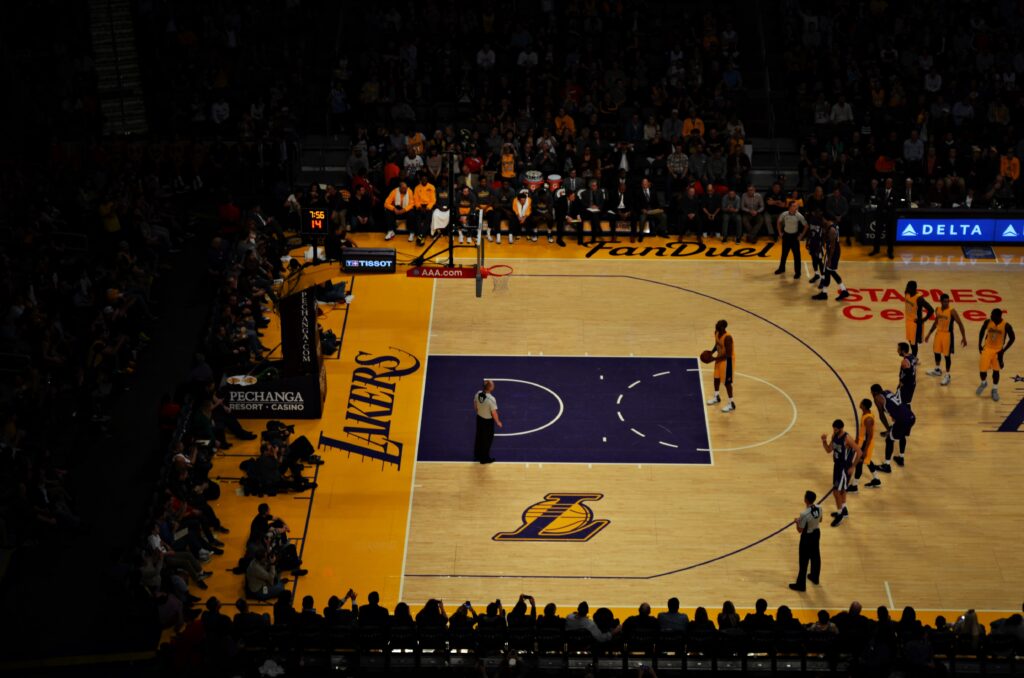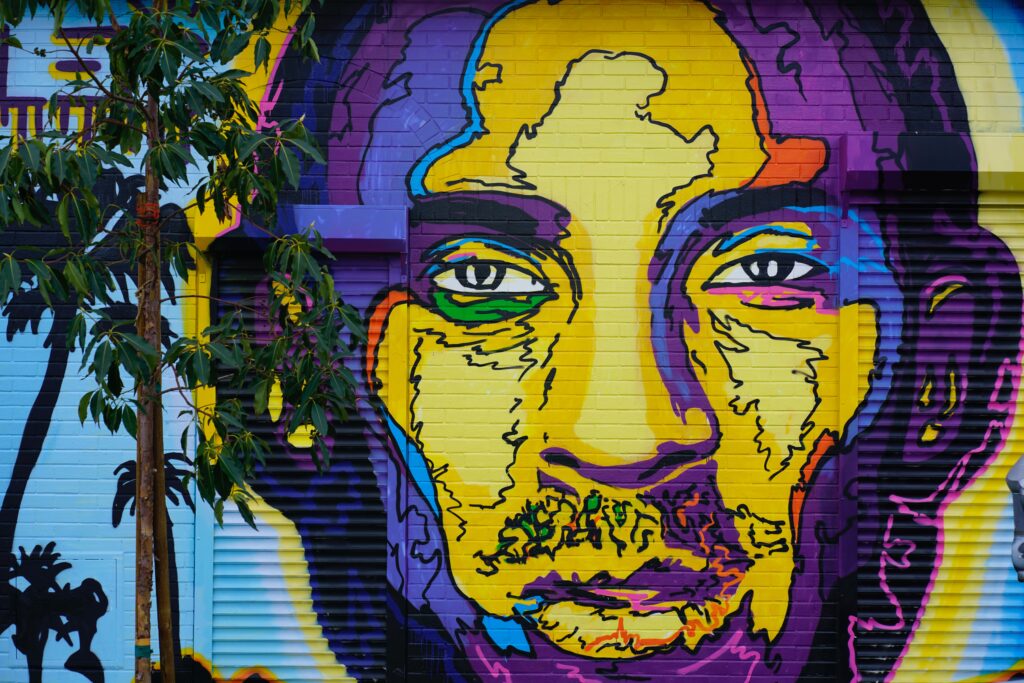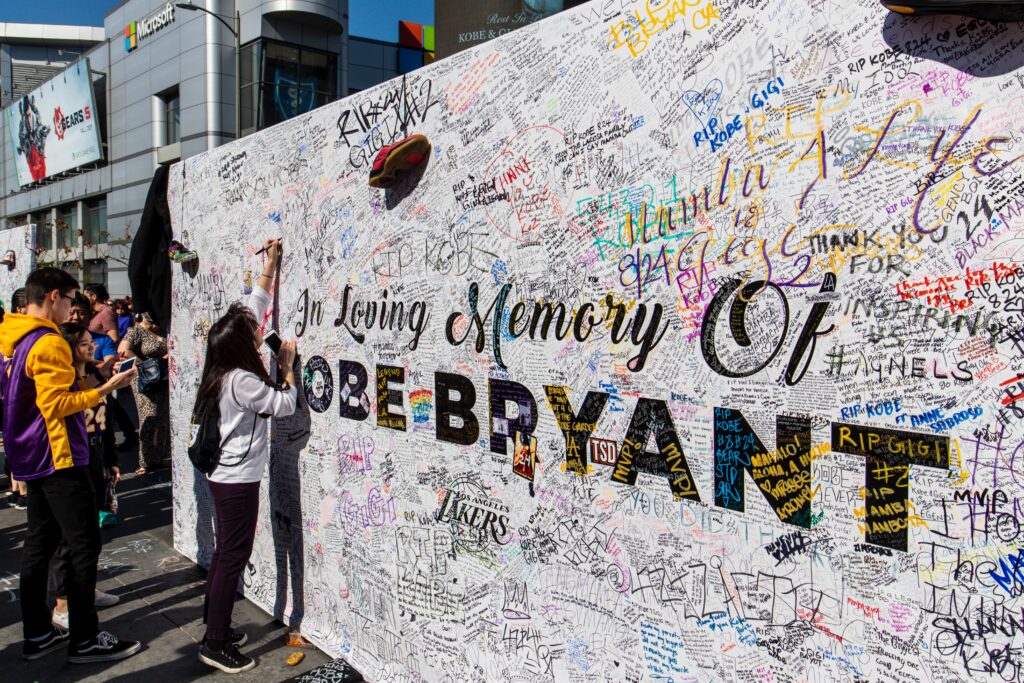How the “Mamba Mentality” by basketball legend Kobe Bryant can change how you live your life and approach your work
Kobe Bryant was a tremendous basketball champion, a legend, and considered one of the greatest athletes of all time. His achievements will be cited for many years to come. Sadly, a helicopter crash ended his life on January 26, 2020. Bryant and his daughter’s sudden and tragic demises sent shockwaves across the sporting world.
While many remember his legendary skills on the basketball court, the athlete’s inspirational “Mamba Mentality” clearly had just as much of a lasting and powerful impact.
In the first years after his death, and with this article I will try to summarize his book “The Mamba Mentality: How I Play by Kobe Bryant” and look into the philosophy and wisdom that came out of it.
As a top-level basketball player, Kobe Bryant had a legendary career
There are few players of the caliber of Kobe Bryant. He became a true basketball star and huge champion in just a few years. But what exactly did he achieve?
Kobe Bryant was born on August 23, 1978, in Philadelphia. Very early on, he became passionate about basketball. In 1996, at only 18 years old, he was selected to play for the Los Angeles Lakers team in the NBA (National Basketball Association). He stayed there for his entire career, 20 seasons, until 2016.
This team was his second family. He did everything he could to improve the performance and cohesion of the Lakers. He and his teammate Shaquille O’Neal formed one of the most famous duos in the history of the NBA, with a string of exploits and titles: Like a historic triple in 2000, 2001, and 2002 at the NBA Championship.
In total, until his retirement at 37, he played a whopping 1,346 games!
His technique allowed him to collect titles:
- Top scorer in the NBA in 2006
- The best player of the decade 2000
- Five NBA championship titles
- Double Olympic champion in 2008 and 2012
- Over 6,000 rebounds and assists
- 81 points against the Toronto Raptors in 2006 (the second performance in NBA history)
- 33.643 points in the regular season. Only Kareem Abdul-Jabbar and Karl Mal did better
His aura was such that his two jerseys – numbers 8 and 24 – were retired by the Lakers as a sign of respect when he retired.

Kobe Bryant’s greatest passion was his work
Kobe Bryant’s destiny started with a fascination for basketball. As a child, Kobe Bryant received his first basketball from his father. This simple gift totally captivated him.
He never stopped admiring its shape, color, grained leather texture, perfect grooves. His fascination was such that he didn’t even want to play with it for fear of damaging it! Fortunately, his curiosity was stronger, pushing him to try it. He then discovered another exciting element in this ball: its bounce, with its characteristic and regular thumping sound. These small details are at the origin of Kobe Bryant’s passion for basketball. To him, everything else – effort, achievement, or fame – was nothing. He had retained this love for the ball and thus his professional work throughout his life.
This passion has allowed him to go further than other basketball players. Indeed, the sacrifices demanded by the high level of this sport were not really an effort for him. Instead, they represented the ever-increasing materialization of this initial love. As a result, he did everything he could to learn and progress.
If he sometimes seemed invasive, individualistic, and fierce, it was because he was constantly asking questions and looking for ways to improve his game and go further. For example:
- When he observed a technical gesture that he didn’t know, he practiced relentlessly until he mastered it perfectly.
- When he failed, he would evaluate himself, almost obsessively, to find out the cause.
In short, Kobe Bryant’s passion for basketball began with the ball and evolved into his own practice. His intensive training and curiosity explain how he was able to reach such a level.
How the “Mamba Mentality” pushed him to always strive for excellence
Kobe Bryant showed passion, uncommon motivation, and dedication to his work. He called this attitude the “Mamba Mentality,” echoing the name of one of the most dangerous snakes in the world.
According to Kobe Bryant, talent (skillset) was nothing without work (mindset). You might think that talent is ingrained and natural in stars. But it is not.
On the contrary, hard work allows you to give your best when things go wrong, for example, in challenging game situations.
Hard work can be your safety net: even when things go wrong. You are, in this way, consistently solid and dangerous for your opponents. Therefore, the mamba mentality is, above all, a state of mind that of doing everything to constantly surpass yourself. It requires:
Honesty: Kobe was always honest and loyal to his team. He had many opportunities to join another team, but he remained with the Lakers throughout his career. You may call him a fool, but that’s what honest people are: not selfish and think of others rather than reaping benefits for themselves.
Focus: The passion with which Kobe played all these years in the NBA is known by all. It’s about prioritizing professional goals over his work-life balance. It is about playing with razor-sharp focus and mastering your game with only one desire; to win and nothing else!
Optimism: Kobe remained optimistic about winning a game or the NBA title even in sinister scenarios. Being a champion five times but also a runner-up on two occasions, he knew how it felt to lose after working so hard during the entire season. That’s why he remained optimistic and consistently inspired, empowered, and motivated the team to bring their A-game, so they won’t have any regrets later.
Passion: Kobe played every game with the same enthusiasm and passion as if he were playing a final round of the playoffs. The mentality of consistent work and pushing through boundaries, never giving up, never falling, and just continuing to push through.
Fearlessness: Kobe was always fearless, and he took every opponent head-on with an attitude that some deemed as impulsive or rough, but that’s how Kobe earned his reputation. As a thorough professional, Kobe was one of the greatest players the game has seen. He is a tale of immense focus, grit, and determination against all odds.
The mamba mentality is a journey towards excellence. Kobe Bryant was so obsessed with this quest that he worked non-stop:
- When his teammates would relax or go home, Kobe Bryant would return to the gym.
- He always worked out before others, starting at six o’clock in the morning. If he had to, he would sleep less!
- He would work out before his kids woke up and come home to say hello. And he would wait until they were in bed in the evening before going back to training. His night sessions became legendary.
He was so determined that even his injuries didn’t really stop him:
- On December 11, 2009, he injured his finger in the middle of a game. The X-ray, which was hastily taken in the hallway, revealed a fracture. However, he just asked for a bandage to go back and play! After that, he spent long hours rethinking the way he shot because he could no longer use the same force on that finger.
- On April 12, 2013, he injured himself again during a match. This time his Achilles tendon had just torn. Despite this, he managed to walk to the bench alone, which was already a feat. When the time-out resumed, he crossed the entire field to take two free throws, which allowed his team to tie the game. He was not operated on until the next day.
He never complained about his injuries. In his opinion, there was no point in doing this because you had to keep moving forward and never give in to obstacles, whatever they were.
According to Kobe Bryant, talent (skillset) was nothing without work (mindset). You might think that talent is ingrained and natural in stars. But it is not.
To excel under pressure, learn to manage your emotions
According to Kobe Bryant, in addition to his determination and hard work, a champion had to have another string to his bow: the ability to manage his emotions effectively.
What’s the best way to do that?
According to the basketball player, you have to be highly focused on the present to control your emotions. You have to keep your mind from wandering around unnecessarily. Kobe Bryant deepened his focus through meditation with his coach Phil Jackson.
Unlike other teammates who listened to music, he found silence helpful because it brought calm, especially before crucial moments.
However, he also recognized the power of music to put himself in a particular state of mind. For example, he listened to:
- Hard rock to give himself energy
- Music that he listened to in high school to relax
According to the “Mamba Mentality,” managing your emotions also requires self-analysis, asking yourself, “What do I need mentally right now?”. By doing so, you will efficiently find the correct answers.
Kobe Bryant also developed another technique, where he focused on the negative emotions he felt during a defeat. These emotions were often as intense as he felt when he won, so he always tried to avoid them.
In addition, Kobe was inspired by his mentors to try to be like them: Basketball players Bill Russell, Kareem Abdul-Jabbar, Magic Johnson, and even boxer Mohammed Ali! However, he mainly relied on his own passion and motivation.
Indeed, you can’t let yourself be destabilized when your own thirst for excellence pushes you to put more pressure on yourself than you are already under!
Finally, to control your emotions during stressful situations, live in the present, listen to your negative emotions to overcome them, and follow the example of inspiring people.
Finally, never give up your motivation!
Focus on your physical preparation and training/learning to perform better
Physical work and training/learning are the keys to your future success. You must therefore perform them intelligently and with focus. How can you do that?
Although it may seem contradictory given his behavior when he was injured, Kobe Bryant emphasized listening to his body. His goal was to give it all, every time, to win.
To achieve the same result, you need to know what you can ask of yourself. If you don’t listen to yourself enough:
- You could not know your limits at critical moments, and you will risk injury.
- You could not be able to give 100% of your abilities.
For example, by listening to his body, Kobe got Nike – his official sponsor – to bend over to his model of sneakers, which used to be consistently high. Instead, he wanted to wear low-cut sneakers, like football players, because he had listened to his body, which demanded more mobility around the ankles.
Once you understand your body’s needs, warm up because this reactivates the muscle memory.
For example, Kobe Bryant always started his workouts with short throws and then made longer and longer throws. He also knew other tricks that he used to optimize his workouts:
- Sprint sessions to reduce recovery time
- Your fitness always makes the difference when all the other players are exhausted at the end of the game. It is therefore essential to build up strength and endurance. For example, each week, Kobe Bryant would do at least four 90-minute workouts
- 15-minute naps when you’re too tired
- After a hard workout or game, apply ice to your knees and feet for 20 minutes to speed up recovery and prevent inflammation
- Practice thermal shocks to strengthen your body: Alternate hot showers with cold showers or ice baths for a few minutes
- To strengthen your ankles and avoid knee injuries, tap dance!
- Practice being equally good with both hands. This will allow you to react in the best way at a decisive moment. For example, brush your teeth with your left hand if you are right-handed
- Choose a good physiotherapist. Their skills will directly affect your physical recovery
- Ultimately, your performance in the field depends on multiple factors directly related to the quality of your training. Don’t neglect it!

According to the “Mamba Mentality,” managing your emotions also requires self-analysis, asking yourself, “What do I need mentally right now?”. By doing so, you will efficiently find the correct answers.
A game is like a fight, never be afraid of confrontation
The public may not know it, but all top players see this truth: You must “love the fight” and conflict, whether physical or mental, to be a great player.
Why is that?
A majority of high-level players are professionals. They play to win, sometimes facing huge stakes for their careers. Thus, professional players:
- Do everything possible to “harm” the opponent with methods allowed by their sport
- Make numerous fouls, voluntary or not, to prevent the opponent from scoring when they are in difficulty
- Give the best of themselves and are naturally offensive. All have more or less “big” egos, which explains why they can’t stand defeat
- Consequently, blows, intimidation, and physical destabilization are all part of a player’s daily life. As a high-level player, if you are not ready to face any opponent, even if he is stronger than you, you have no business being on the field.
- You should never let someone else knock you down or scare you. Instead, you should become like an attack dog, getting excited by blows and not letting go. Be aware that the most aggressive and determined opponent often wins against one or more opponents, even if they appear stronger.
The mind is a determining factor in a conflict.
Your opponent will push you to perform actions that you don’t want to do in both cases. For example:
- In basketball, they will make high passes if they know you have a slight ankle injury and can’t jump very high
- They will dribble low if you are tall and your center of gravity is higher than theirs
- They will push you to defend if you’re more comfortable attacking and vice versa
- They will fake a jump that they won’t make
- They will obstruct your hand view to prevent you from passing or shooting
- To avoid failure and to get the upper hand on your opponent, you should therefore
- Work on your bases and your weak points to avoid being caught off guard
- Concentrate on your strong points
- Study the weak points of your opponents. It is also more enjoyable to imagine solutions to what happens on the screen. What would have happened if you had acted differently?
- Voluntarily tiring the opponent, forcing them to perform actions they don’t master well
- Develop a sense of the game to understand what will happen before the others. This is how you will be able to make “magic” passes or shots
Don’t be afraid of conflict to be effective in your actions. On the contrary, be a versatile and formidable warrior on the field!

Never give up your motivation!
What we can take away from Kobe’s Mamba Mindset
- For 20 seasons, Kobe Bryant was a real asset to the Lakers and became a basketball legend
- He reached the highest level because of his strive for excellence and his passion
- He achieved his goals through hard work and determination
- The quality of training and learning determines the quality of your game
- Mental preparation and management of your emotions are helpful to adapt to all situations
- To excel in a game, you must enjoy conflict and seek to outdo your opponents
More than a great basketball player, Kobe Bryant was a hard worker and a model for an entire generation. Beyond his records and the titles he won, he gave everything to live from his passion without setting limits. He tried to improve day after day. It was his inner fire that created the legend.
Will you be able to find yours?
Based on “The Mamba Mentality: How I Play By Kobe Bryant”.
***
Disclaimer:
The content of any publication on this website is for informational purposes only.




